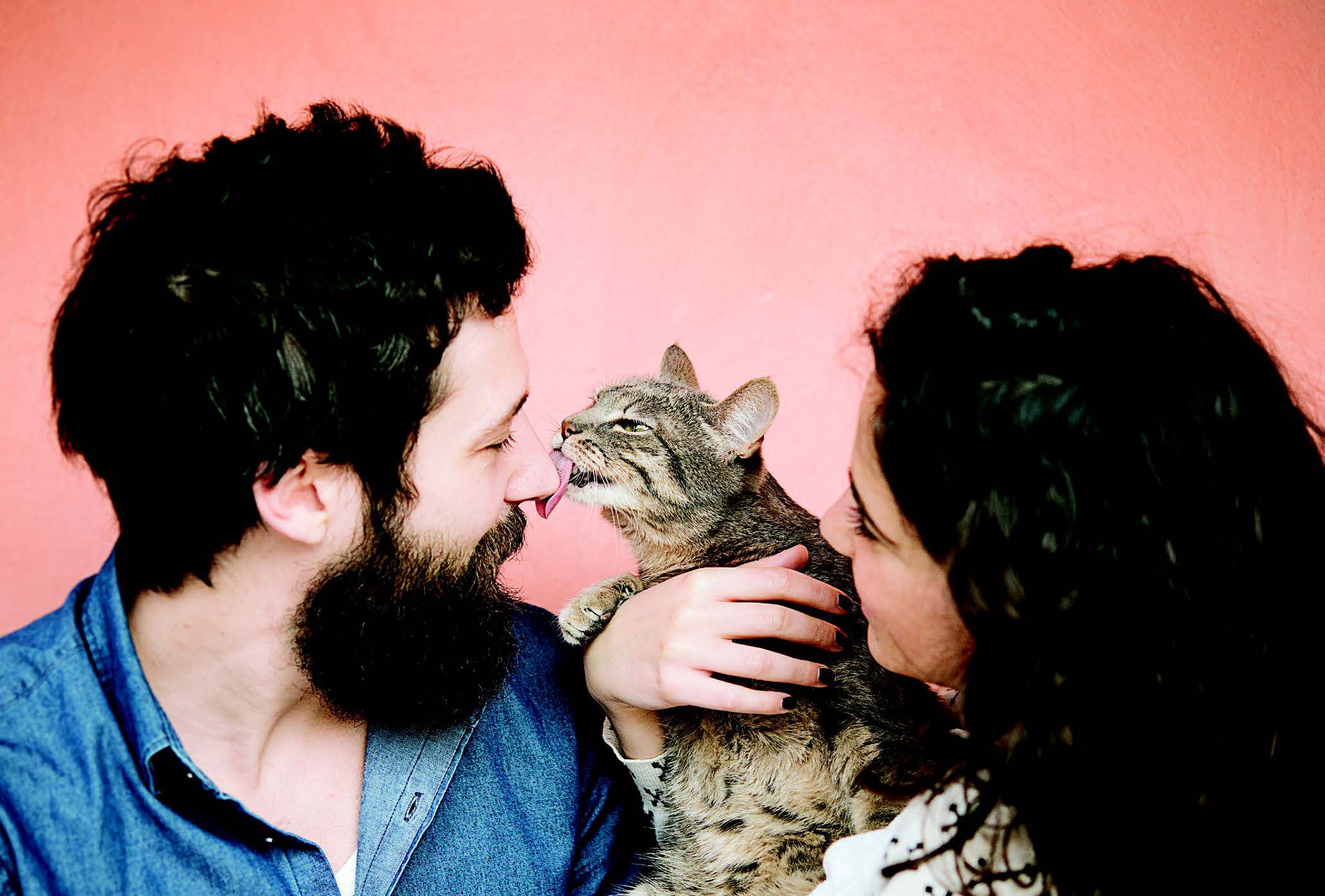With her tongue, a mother cat welcomes her kittens into this world. A queen bathes her babies immediately so that predators don’t detect the scents associated with birth and continues to groom her kittens until they can bathe themselves at around 4 weeks of age. Grooming is a big part of cats’ lives. In fact, they spend as much as 50% of their bathing time. Grooming is also one of many behaviors that cats transfer to humans.
A familial relationship
Cats transfer other actions to their favorite people. For example, meowing and kneading are kitten-to-mother behaviors. Grooming, on the other hand, is a mother-to-kitten behavior. Kitten-to-mother behaviors express submissiveness, while mother-to-kitten behaviors express dominance.
The term used to describe cats grooming other cats is allogrooming, and it is a well-researched feline behavior. In a 1998 study, researchers from the University of Southampton in the UK found that higher ranking cats groomed lower ranking cats more than the other way around. Allogroomers also took higher stances than the allogroomees.
Allogroomers also showed aggression more often than allogroomees, usually after grooming the other cat. They often groomed themselves after grooming the other cat. The researchers surmised that allogrooming may be a way of redirecting potential aggression without picking a fight in which someone might get hurt. That someone usually has a close social bond with the allogroomer.
In a 2003 study, researchers from the University of Georgia studied the social interactions in free-roaming cat colonies. They found that allogrooming only occurs among cats that have a social bond. Cats do not groom anyone they do not know.
Cats reserve allogrooming for family—both biological and adopted. That includes you. Cats claim their family by licking them, as this leaves their scent on the ones they groom. Both male and female cats groom their humans.
cats reserve allogrooming for family — both biological and adopted. That includes you. Cats claim their family by licking them, as this leaves their scent on the ones they groom.
A helping tongue
The University of Georgia researchers also noted that recipients of allogrooming are usually highly cooperative, will tilt and/or rotate their head to provide access to the groomer, often while purring. It appears cats solicit grooming from other cats and their humans. They may flex their neck or expose the top of their head or back of their neck. That’s because this is part of their bodies they cannot easily groom themselves, especially when they get older.
The researchers gave one specific example of a female cat with two of her adult offspring. Each cat groomed the other two cats over the course of several minutes and took turns helping each other out with their bathing needs.
By understanding how cats groom each other in their colonies, we can better understand how to treat the cats in our household. The researchers from the University of Southampton noted that allogroomers generally groomed the head and neck area. So when we pet and scratch our cats’ head and neck, to their psyches we are grooming them.
You might have noticed that cats like it when we pet or scratch them on the head and neck, but you may have also noticed that cats may seem alarmed when you pet them on other areas of their bodies, like their bellies. That could be because cats don’t typically solicit help grooming these areas and that may contribute to petting-induced aggression, the researchers from the University of Georgia concluded.
Judging from research, cats groom their people because they see them as family. Cats neither groom nor solicit grooming from strangers. Since it’s usually to the head and neck, a part of their bodies they cannot reach themselves, they might be looking for practical help with bathing or extending that help to you from time to time.
